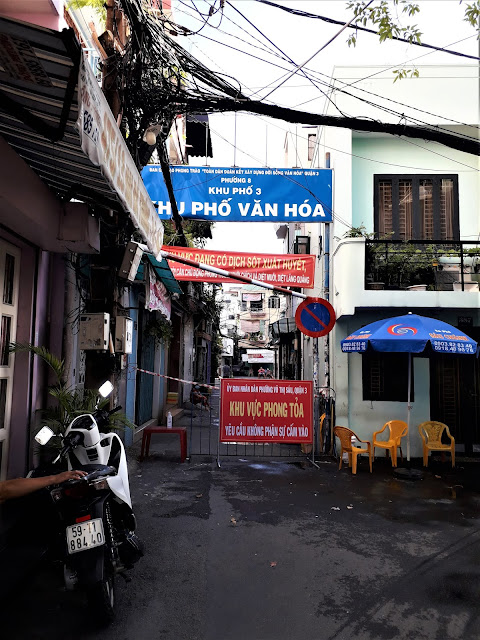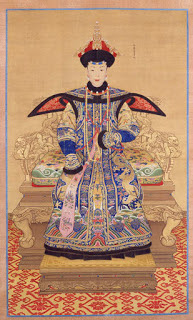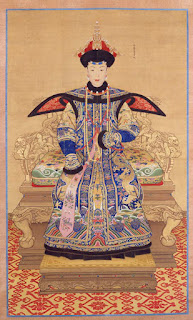Ho Chi Minh City: the Covid-19 diaries Part 2
Well... perhaps I / we spoke too soon!
As detailed in my Covid-19 diaries Part 1 here (imperative to read first), Vietnam and especially, Ho Chi Minh City, the nation's Covid-19 poster child, had done a pretty remarkable job managing the coronavirus outbreak, in fact one of the world's most successful in terms of relatively low number of cases and deaths. After just over a year, in late May 2021, the Covid-19 tally was roughly 42 deaths and 5141 cases out of a population of 90 million and sheesh, even the economy is growing.
Overall, compared to much of the rest of the planet during the global pandemic, I was lucky to lead a fairly normal life in Ho Chi Minh City for a year or so and apart from scant work, dwindling funds, borders closures and witnessing some favourite venues forced to close, nay, even quite the enjoyable time.
How proud the Saigonese were of their 'normal service resumes' life, the crowds in the cafes, restaurants, pagodas, shopping malls, festivities, etc and vibrant street life. Look at us! Look at how well we handled Covid-19 (okay, with a few glitches and snap, non-essential shut downs, etc).
But, oh dear..... I thought this was all too good to be true, especially for one of the most densely populated cities on earth and Vietnam's largest metropolis - and sadly, turns out I was right. Seems, just like all the other Covid-19 success stories... Australia, Taiwan, Singapore, Hong Kong, et al...., who'd been the envy of the world with their lack of lockdowns and relative freedoms, Vietnam was caught off-guard by the new 'Delta Variant' strain, which made its unwelcome presence known around May 2021 - just as Europe and the US were slowly emerging out of their lockdown nightmares and putting their population in mass vaccinations programmes.
As a highly transmissible strain, the Delta Variant (BTW, nothing to do with the Mekong Delta region), was no longer able to be contained by Vietnam's previously stellar contract tracing, zapping down Covid-19 zones, venue restrictions, strict quarantines, etc, that got them through 2020. Additionally, with hardly any of the Vietnamese population vaccinated (the national vaccination programme started around March 2021 was a half-hearted affair, declining international vaccines in favour of planned domestic production) and with more visitors allowed to enter still-closed borders, the Delta Variant unleashed an unexpected late-in-the-day period of drastic measures, lockdowns and hardship.
And my beloved Ho Chi Minh City, acknowledged as Vietnam's greatest Covid-19 success story, almost overnight, slipped to the nation's worst culprit (although, again, let's keep this real, numbers were still relatively low - 35 deaths in the entire country in May 2021). As city authorities grew alarmed at the rise in Covid-19 related cases and deaths, a period of social distancing began on May 31, known as 'Directive 15,' for what was initially intended for a 15-day period. This was only the second time Ho Chi Minh City had experienced this - the last time being April 2020; a similar ban on social events, gatherings of 20 people or more in one place and of 10 people or more outside workplaces, schools and hospitals, minimum distance of 2m between people in public places, etc, etc, although IMO, this so-called 'Directive 15' seemed a tad stricter, as you will read.
To get the message across, PSA's were commonplace, especially these Covid-19 posters, springing-up in local neighbourhoods.....
and reinforcing the lately-introduced '5K' mantra from the Ministry of Health ("helping citizens get used to living safely with the COVID-19 pandemic in this ‘new normal’ state:")
Khau trang (wearing facemasks), (Khu khuan) disinfecting and hand washing / sanitizing (Khoang cach) keeping a safe distance, (Khong tu tap) avoiding mass gatherings and (Khai bao y te) health declarations.
Vietnam always had been a bureaucratic nightmare, with all its ridiculous red tape, but along this promenade, it literally became so.
Although exercise was initially allowed during the 'social distancing' weeks, this red tape was meant to deter locals congregating en masse along the walkway. When it first appeared, locals simply ignored it and / or defiantly tore it down, so that everyone, including me, could carry on with their daily walks, exercise, socialising and what-not. As public parks were eventually taped-off too and out of bounds by the end of May, a higher number of folk than usual flocked to the canal to exercise (including quite a few foreign expats I'd never seen before), so come the late afternoon, the promenade resembled one big busy fiesta.
Municipal authorities soon got wind of this, however and heading into June, even more tape was strung angrily across the walkway, making it now almost impossible to pass along....
I later discovered why no one would dare rip this tape down anymore: by late June there were massive fines in place for anyone found along here, or in the public parks (unlike the last lockdown, exercise was now deemed an illegal activity - quite extraordinary in a nation where early morning / late afternoon exercise is ingrained in the culture).
Why suddenly overnight, at the end of June - the last day I got away with ducking under the red tape during my daily exercise - these once crowded, joyous canal-side walkways were empty for weeks on end, with locals not allowed to walk their dogs, let their children play, fish, jog, or meet to gossip....., an entire community shut down. And the canal-side cafes, street food stalls, bars and eateries - like elsewhere in the city - had been ordered shut by the end of May, with only deliveries and takeaways allowed.
The symbolic red tape started multiplying elsewhere. It was evident I was now residing amid Covid-19 hotspots, with a growing number of local residents testing positive for the highly transmissible Delta Variant: a tell-tale amount of slender alleys (hems) and residences were taped-off and barricaded with makeshift tables, chairs, wheelie bins and metal grids, topped with "Keep out, Covid-19!" (or words to that effect) signage.
These were surreal times; where once I needed ear plugs, what with all the racket outside in neighbourhood, now by 9pm, you could almost hear a pin drop - except for the police and (very) essential workers whizzing past on their motorbikes and the cacophony of cicadas.
Of course, since the end of May, under Directive 15, all the city's wondrous cafes and restaurants had been closed down, and along with the curfew, putting a stop to any dining out. Pretty ironic, given Ho Chi Minh City is celebrated for its fantastic cuisine and street food (one of my main reasons to live here), along with the Saigonese habit of eating out most nights. Even takeout and delivery service, which the city population, especially expats, had got so reliant on, wasn't allowed anymore either - nor the once omnipresent mobile food stalls, no more 'BAP XAO!' cries blasting out at two in the morning!

"[TB] People struggling due to COVID-19 in Ho Chi Minh City contact 1022 - press 2 for assistance."
Besides, if you were a foreigner, it would most likely be totally incomprehensible!
But wait! Amongst the fierce lockdown restrictions, some loop-holes! In July, a few days after Directive 16 kicked-in, I decided I'd simply had enough and needed to venture into downtown. Moving across town wasn't permitted, unless as a necessity, but in my case, perhaps it was; in dire need of a change of scenery and something interesting to do - anything other than food shopping! Meh.
As there were no taxis allowed on the road, for my rare 'great escape' day out, I didn't mind the 3km or so walk from District Three into central District One, in sweltering heat - miraculously unchallenged by anyone official the whole way down. Once in downtown, all those 'essential' places still allowed to operate suddenly took-on riveting status: Central Saigon Post Office, HSBC Vietnam bank, the pharmacies and, thank the Gods, Annam Gourmet, an upscale food Mecca for expats, where, along with a few others, I was gleefully able to stock-up on yummy foreign goodies, albeit at a price (literally)...
....the start of such similar and unnerving sights near where I lived. Early one morning, I heard a commotion in the alley next door; looking down from my balcony, I watched a group of men in hazmat suits gingerly carry out a wooden coffin wrapped in plastic, hardly rocket science - obviously a victim of Covid-19.
Hitherto about as rare as a white tiger sighting, there was a noticeably increased presence of police out on the streets (sometimes laying down the law for minor offences in an unnecessary heavy handed manner) and groups of men kitted-out in hazmat suits outside stricken buildings and more road blocks erected to curb as much movement as was possible. By late August, the makeshift barricade on my street had organically taken over the entire length of it, the bold red and yellow signs commanding drivers not to enter - I even had to check if it was actually okay towalk round the sides of this eye-sore. All a clear indication my ward had rapidly deteriorated into a no-go Covid-19 zone. Great!
The once sociable Saigonese appeared increasing anxious or despondent, for weeks now, laying low behind the shuttered facades of their homes and businesses. Most lived in cramped apartments and few had the privilege of a garden - invariably just a small balcony - yet they weren't even allowed to exercise themselves or their dogs, or take their kids to the park. If I did pass anyone on the street, venturing out for absolute essentials, most usually gave me an empathetic smile through their face masks, or wave, as if to say, "I understand what you're going through" - a small but monumentally appreciated gesture.
And 'absolute essentials' increasingly covered going to get tested or vaccinated. Most likely alarmed by the spiraling Covid-19 cases and now welcoming supplies of international vaccinations authorities were now ordering the Saigonese to get tested or vaccinated en masse at public sites, such as schools, colleges and community centres, etc.
Initially, foreigners weren't on any vaccination list, as the Vietnamese were the high priority. In fact, foreigners weren't on any list, except that of a few private employers, or the rare international government looking out for their nationals (like the French). Living in the midst of a Covid-19 hotspot and not being able to get vaccinated merely added to lockdown stress.
By the time I had to get my Covid-19 PCR test, I was a nervous wreck, not helped by inexplicably displaying Covid-19 symptoms - night sweats, raging sore throat and tight chest - that same week. Even to get to the international medical clinic in downtown was an ordeal in itself: although taxis were still off the road, they were allowed for airport runs or medical reasons - of which I qualified - but I found it virtually impossible to book over the phone or via an App.
Thus, I was forced to make the 3km or so journey into central District One on foot; as on my prior 'Great escape' day out, normally this pans-out as a pleasant enough walk, heading directly into town along a broad, tree-lined boulevard edged with grand Indochina villas, open-air cafes and dining joints. However, far from it today, walking in insanely hot temperatures encumbered by a tight chest and sore throat, passing a depressing scenario of shuttered buildings and a massive road block manned by police who suspiciously eyed-me-up as I plodded past. Motorbike delivery drivers manically rushed about and unusually large amounts of Saigonese queued-up in socially distanced lines outside a large supermarket, evidently having just learnt about a strict new measure about to be enforced imminently (as you will read later).
When I finally reached the clinic, it was unclear what to do; all the makeshift signs were in Vietnamese and locals and the odd expat were queuing for both Covid-19 PCR testing or (privately funded) vaccinations. Thankfully, a young Saigonese man, swathed in a plastic gown and face shield, briefly explained the procedures to me in decent enough English. In a large open-air yard at the rear, I then waited my turn for what amounted to conveyor-belt swabs, sat on a plastic seat, sufficiently spaced out from those around me and feeling as small and bewildered as a child. I don't know if I was more anxious about my first-ever swab, or catching the Delta Variant off any of those congregating here.
Once my name was called, I approached an open kiosk, where one of the nurses stuck her plastic gloved arms through two holes in the Perspex screen, before brusquely taking samples from my nose and throat. Resembling something from a Hollywood disaster film, it all became too much for me and I was relieved to get out, even the return journey walking in the midday heat.
I had to personally collect my test results the following day, but my symptoms had worsened and my repeat walk into town ended-up even more laboured. So anxious that the USD117 test would turn out positive, I left for the clinic hours earlier than the appointed collection time; and as such, there was no one about, except for two medical workers, one of whom was the same young man who assisted me yesterday. Recognising me, he informed me that the test results collection point wasn't open yet, but would check if they had arrived. Five minutes later, or seemingly an eternity, he came back out again and handed me a sealed envelope with my Covid-19 test results inside; incredibly, the document stated 'NEGATIVE.'
The relief and strain of the last few days, nay, weeks, was overwhelming, why I proceeded to break down in tears in front of them. In between my sobs, I thanked these humbling medical workers profusely for doing their job and expressed how worried I was about my beloved adopted city, almost on its knees and a shadow of its former self. Vietnam and Ho Chi Minh City had endured tough times over the decades, but these last few weeks has been some of the worst.... momentous times that will surely play out in the history books. And I'd been part of it all.
But the Saigonese young man looked me in the eye and assured me,
"Don't worry, miss, our city will get better!"
This one sentence was one of the defining moments of my time in Vietnam; not just epitomizing the sheer resilience of the Vietnamese when faced with adversity, but also how inspirational the youth of Saigon are (I'd often pondered, oh to be young in Saigon, how lucky this Vietnamese generation are, but alas, not so lucky now).
Due to escalating deaths and new cases, 'Directive 16' still continued the unbearable 6pm to 6am curfew and forbade travel across districts, exercise and non-essential businesses and so on. But the next day, things got even more draconian, with a hastily announced measure declaring citizens weren't even allowed to leave the house to buy food and essentials, only for medical-related reasons or the airport. All essential goods, medical supplies and food for the next few weeks were to be distributed by the local authorities, the military and other voluntary organisations; this lot now responsible for buying and delivering essential supplies for the city's entire population of around 13 million, coordinating with local ward authorities, resident groups and apartment building management and a few supermarkets offering additional, albeit limited, delivery services.
More knee-jerk regulations from a government desperately trying to find a solution to the Covid-19 fourth wave. Not surprisingly, this was a logistical nightmare: relying on, the military and volunteers to buy your weekly shop, some residents didn't get food for days, in some cases, if at all. There were reports in the international press of locals going hungry - ironic in one of the world's greatest food destinations - and some expats complained that even though they had plenty of money to purchase food, they now didn't have enough to eat. And if you did get your supplies, invariably, these were delayed with not exactly what you'd ordered.... or anticipated getting.
And so things dragged on into September.... by the end of the month, Vietnam's total number of Covid-19 related cases reached approximately 19,098 deaths and 786,209 infections, but Ho Chi Minh City remained the nation's bad boy with the worst tally of rising cases and deaths, despite a strict lockdown for around 100 days.
Not surprisingly, city dwellers were finding these brutal conditions increasingly intolerable. Those that could leave, like the thousands of foreign expats, had already fled home, albeit on limited and often extortionately priced international flights. Many, not only having lost their jobs and savings, but with visas now expired; as the 15-day emergency visas were too difficult and expensive to keep renewing - (immigration had now literally left the building, consumed with other distractions) - they had no choice but to get out.
Things however slowly started to turn the corner, with mass testings and vaccinations ramped-up, approximately 90 percent of the city's adult population now having received their first vaccination (8 million of Vietnam's population now double-vaccinated). And the 'mass military food shops' eventually got supplemented with some food stores and outlets allowed to open, mainly for delivery services (with conditions) and those exemplary districts with consistently lower cases, handed a small bit of freedom back, albeit with health apps.
Finally, Ho Chi Minh City’s historic lockdown - like much of the rest of the country - was lifted on October 1 - along with 'a new directive on pandemic control.' Although many regulations still remained in place and some service sectors and venues remained closed, restrictions in most areas of Ho Chi Minh City would gradually ease-up. Numerous services, work premises, indoor and outdoor events and businesses could now resume operations and traditional markets, supermarkets, shopping centres, convenience stores and selected lifestyle stores were ow allowed to open - albeit subject to conditions. Perhaps, most exciting, everyone could go out and exercise again and the parks were open, ut alas, restaurants and eateries were only allowed to open for deliveries and takeaway, while high-risk venues like bars, spas, nightspots, cinemas and karaoke, still didn't get the go-ahead to open.
It's been heartbreaking to see this amazing city so silent, immobilised and under duress, but as infection rates continue to decline, death rates slow down and more of the population get a shot in the arm, perhaps now Ho Chi Minh City - and Vietnam - is heading in the right direction and can focus on the tentative steps of reopening and getting life back to a 'new normal' ......
As the young man at the clinic defiantly declared, despite the inevitable mental health crisis, tally of ruined businesses and livelihoods and escalating poverty that will surely emerge post-lockdown - and daily life that might never be the same again - Ho Chi Minh City will (eventually) 'get better' - and surely back to its former fabulous self!





















































Comments
Post a Comment